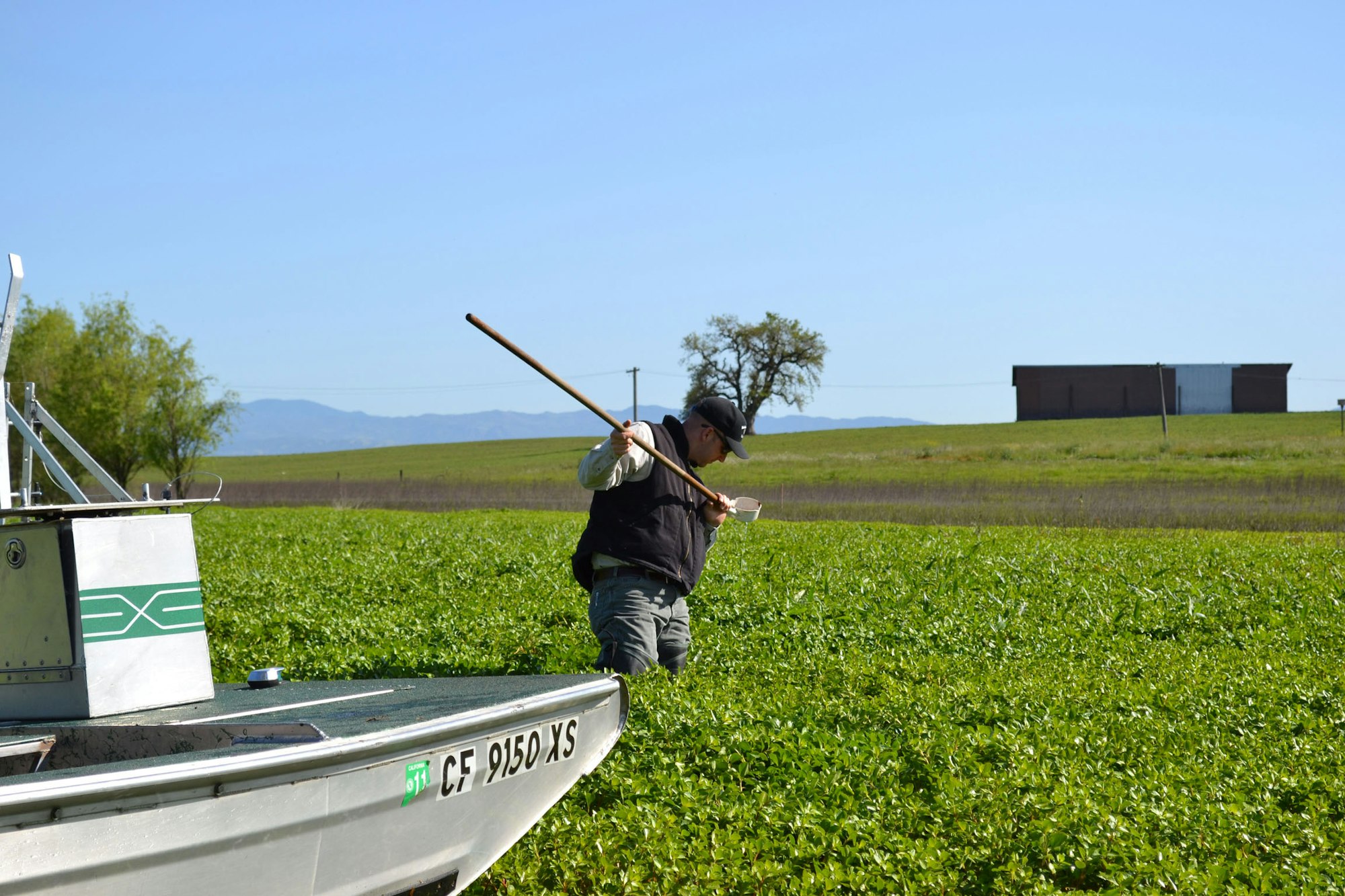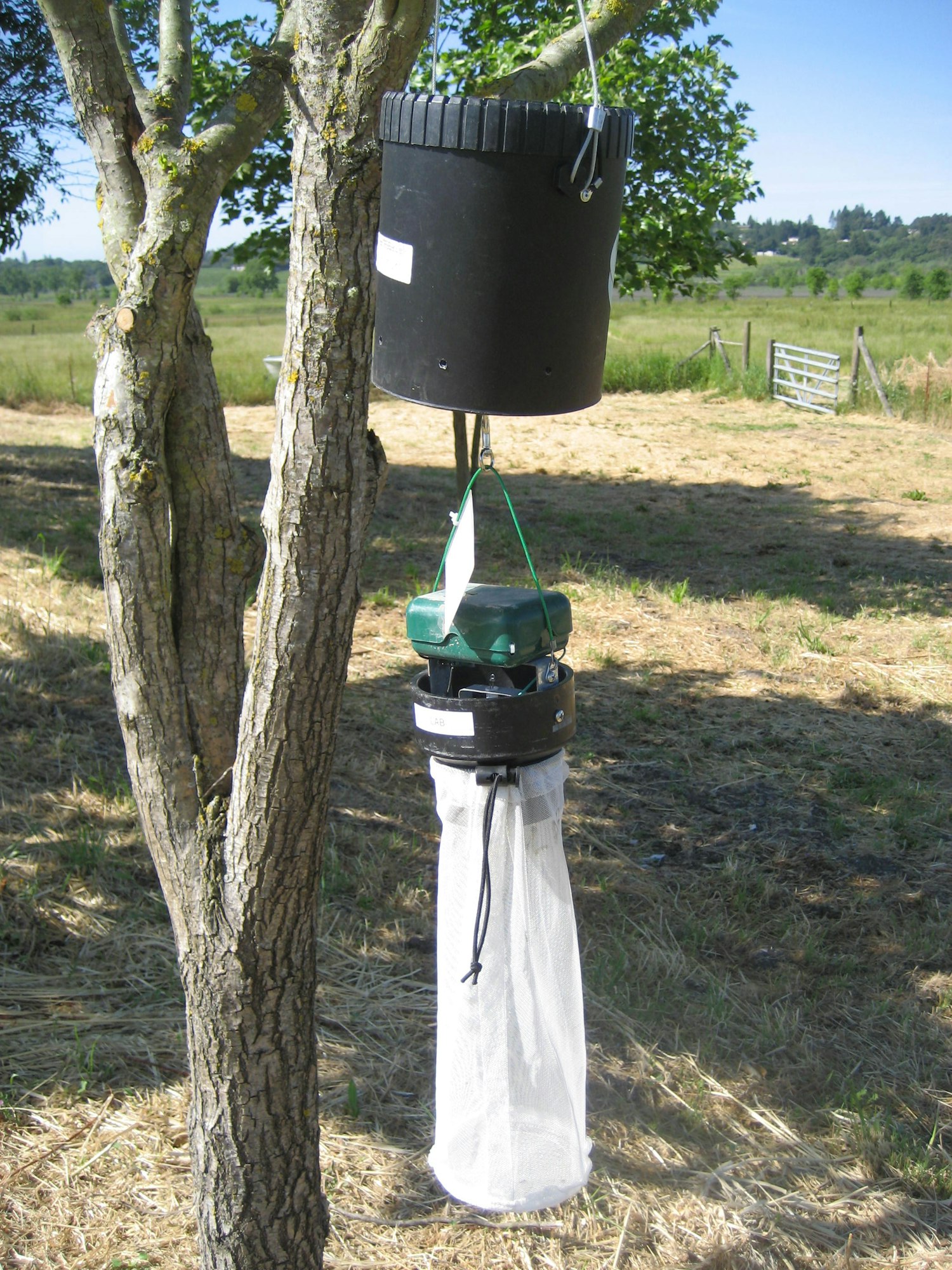Mosquito Control Program

District staff checking for mosquito larvae
Program objectives
- This program serves to effectively manage mosquito populations and prevent the spread of vector-borne diseases such as West Nile virus (WNV).
Scope of program
- The District's mosquito control program is based on scientifically planned management tactics and control strategies that reduce the abundance of mosquitoes in a timely manner. This method is commonly referred to as “Integrated Vector Management” (IVM) and incorporates five basic methods: public information and education, mosquito and vector surveillance, biological control, source reduction, and microbial and chemical control.
Public Information and Education
- The primary objective of a public relations campaign and education program is to educate and inform the public about mosquitoes and vector-borne diseases. Our advertising and outreach program accomplishes this through the use of media, participation in community events, and a comprehensive education program and that offers presentations to various organizations and school groups.

Adult mosquito surveillance trap
Mosquito and Vector Surveillance
- The District closely monitors mosquito activity and detects arbovirus activity by testing mosquitoes for the presence of pathogens. The information obtained from these activities helps to guide efficient control of vectors and vector-borne diseases in Marin and Sonoma counties.
Source Reduction
- Source reduction or physical control is the manipulation of an environment to reduce mosquito breeding. A few examples of source reduction include: dumping out containers, filling in potholes, promoting effective drainage, controlling vegetation and appropriate timing of irrigation.
Biological Control
- Biological control is the use of a living organism to control a particular pest. The organism attacks the harmful pest, resulting in a reduction of its population levels. The most successful biological tool against immature mosquitoes in California is the mosquitofish, Gambusia affinis.
Microbial and Chemical Control
(larviciding and adulticiding)
- Larvicides are materials used to control mosquito larvae. Larvicides may be used in conjunction with other mosquito control measures in an IVM program to minimize the number of adult mosquitoes that emerge. This not only reduces the incidence and risk of disease but also decreases and in many cases eliminates the need for adult mosquito control.
- Adult mosquito control (adulticiding) is used to reduce adult mosquito populations. Adulticiding is conducted when all other methods are unable to maintain mosquito numbers below a level that is considered tolerable or when emergency control measures are needed to rapidly disrupt or terminate the transmission of disease to humans.
- All products used by the District are EPA registered public health pesticides labeled for mosquito control. Applications of these products are conducted by state certified mosquito and vector control technicians in accordance with label requirements and limitations.
Free services available
- Residents experiencing a mosquito problem may call 707-285-2200 or click here to set up a free service request.




